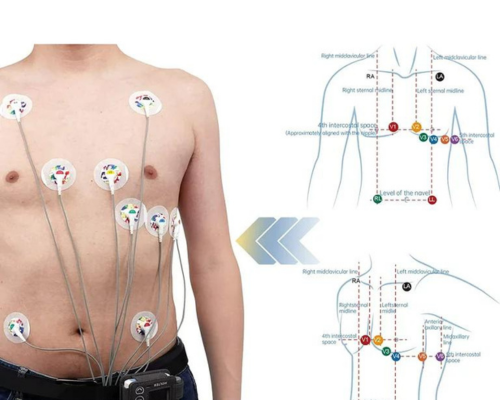
"ECG monitoring, or electrocardiogram monitoring, involves continuously recording the heart's electrical activity to detect abnormalities, diagnose heart conditions, and monitor treatment effectiveness, ensuring optimal cardiac health and management."
E.C.G./ECHOCARDIOGRAPHY
E.C.G Monitoring
The ECG is used to investigate suspected problems with the electrical conduction system of the heart as well as some other abnormalities such as metabolic disturbances (e.g. excess potassium). The ECG is an essential tool for health professionals in making a diagnosis of abnormal heart rhythms when one is suspected. It is a routine investigation in people who complain of symptoms such as chest pain as well as breathlessness. The findings of the ECG can also have an effect on treatment of certain conditions, for example it is helpful in deciding some aspects of treatment in people who have suffered from a heart attack.
ECHOCARDIOGRAPHY
An echocardiogram, often referred to as a cardiac echo or simply an echo, is a sonogram of the heart. (It is not abbreviated as ECG, because that is an abbreviation for an electrocardiogram.) Echocardiography uses standard two-dimensional, three-dimensional, and Doppler ultrasound to create images of the heart.